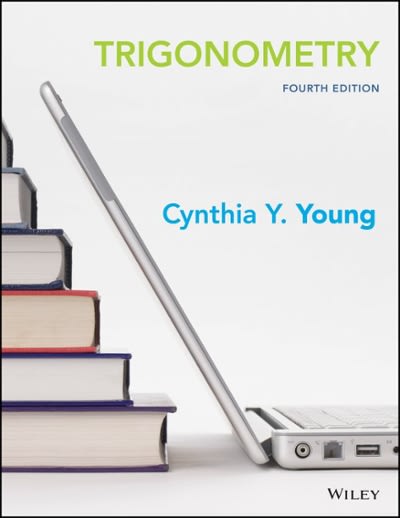Question
Question 1 Suppose E1 and E2 are events in a sample space, S, where P(E1) = 0.39 and P(E1 E2) = 0.61. Find P(E2) if:
Question 1
Suppose E1 and E2 are events in a sample space, S, where P(E1) = 0.39 and P(E1 E2) = 0.61.
Find P(E2) if:
(a) E1 and E2 are mutually exclusive
(b) P(E1|E2) = 0.5
(c) E1 and E2 are independent
Question 2
John is an experienced home baker and never uses a timer when he bakes, instead judging whether his cakes are ready by looking through the oven door. Let X be a random variable denoting the time taken before he judges a batch of cupcakes to be ready to come out of the oven, with p.m.f.
X | 9 | 10 | 11 | 12 | 13 | 14 | 15 | 16 | 17 |
P(X = x) | 29c | 99c | 76c | 135c | 150c | 147c | 94c | 51c | 19c |
(a) Find the value c.
(b) Calculate the probability that any randomly chosen batch of cakes will take longer than 14 minutes before John takes them out.
(c) Find E(X) and Var(X).
John and his partner are hosting an afternoon tea party, and they decide that 8 batches of cakes will be needed for this event. Let Y denote the total time that it will take John to bake enough cakes, assuming that it also takes 5 minutes for the oven to heat up sufficiently at the start of the session, and that he bakes batches of cakes one immediately after the other.
(d) Find E(Y) and Var(Y).
Question 3
A psychological experiment consists of subjecting an individual to a certain stimulus and recording whether or not they respond. The probability of a response is 0.59. A sequence of 6 independent experiments is called a series.
(a) What is the probability that there is exactly one response in a series?
(b) What is the probability that there is at least one response in a series?
(c) What is the probability that a single series consists entirely of responses?
What is the probability that, in 8 series, exactly two series consist entirely of responses?
Question 4
Passengers call a rail enquiry telephone line at the rate of 2.48 calls per minute. Assuming that the number of calls follows a Poisson distribution and that the enquirers have to wait if there is more than one call in any given minute
(a) What is the probability that a customer will have to wait?
(b) What is the probability that the service will be unused in any given minute?
In order to improve the service, the rail company bosses propose to include a second operator on the line. Calls will be automatically transferred to the new operator if the first is already speaking to someone. Under this new system
(c) What is the probability that a customer will have to wait?
Step by Step Solution
There are 3 Steps involved in it
Step: 1

Get Instant Access to Expert-Tailored Solutions
See step-by-step solutions with expert insights and AI powered tools for academic success
Step: 2

Step: 3

Ace Your Homework with AI
Get the answers you need in no time with our AI-driven, step-by-step assistance
Get Started


